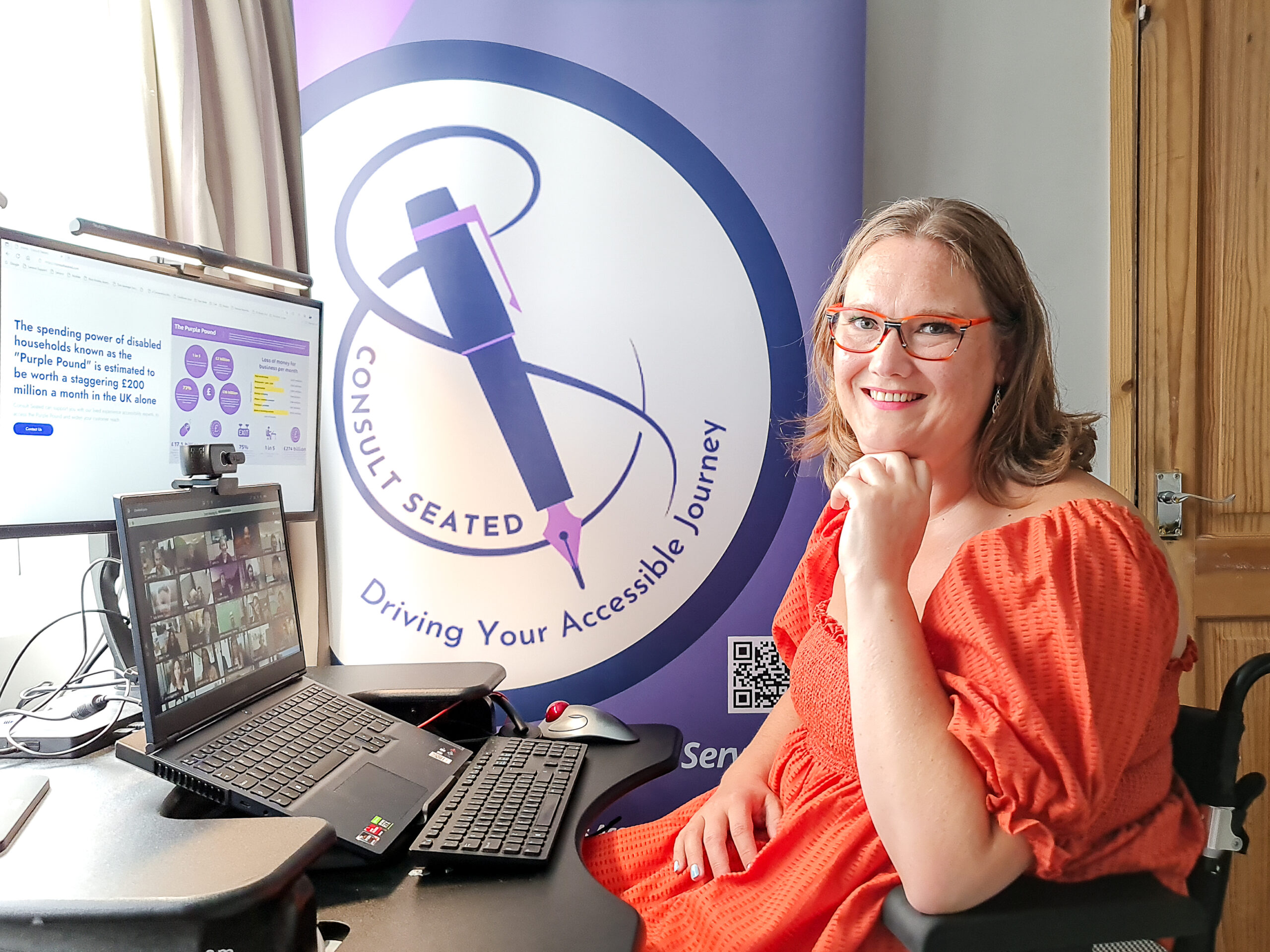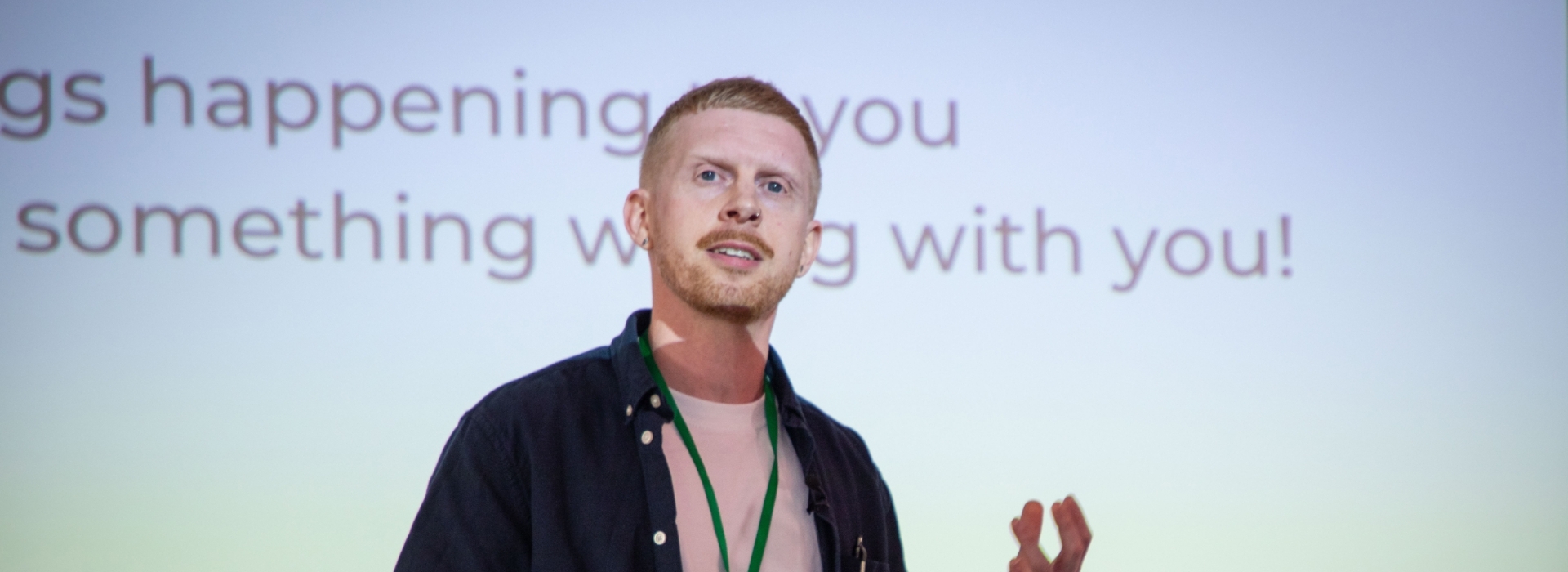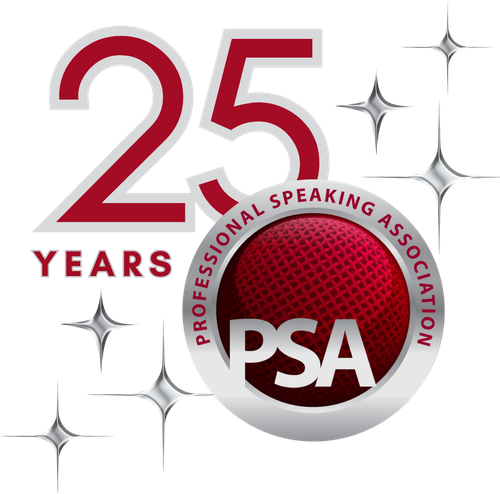
A Different View of Events
27th December 2022 | By Kat Paylor-Bent
Do you switch off when you hear the words like ‘accessibility’ or ‘disability’? You won’t be the first or last person to say, “Yes I do switch off.” What does this have to do with you as a public speaker?
Well, to be accessible, we need to ensure that the way we disseminate information can be understood by the vast majority in the room.
Did you know that 1 in 5 people in the UK are disabled? Only 20% of these people will have a physical disability you can see, while the rest fall into the title of ‘Invisible Disabilities. This includes conditions such as Autism, Dyslexia, ADHD, Deaf and Blind, to name but a few.
Now, imagine five people walk into your presentation, but you turn one of them away, saying, “Nah, you need to leave now; I’m not going to attempt to speak to you in a way you understand; I don’t consider you valuable enough to bother learning how to communicate with you.” Are you being inclusive? Will that person ever want to attend your event again? That’s, in effect, what you are saying by not making your talks accessible and inclusive.
Have you ever looked out into a crowd and thought people were daydreaming, fidgeting or ignorant?! It may not be ‘what’ you are saying; it may be ‘how’ you are delivering your message and if it is accessible to the listener’s needs!
When you’re invited to speak, think about how you can include everyone in the room. Speak to the organiser and ask what accessibility features they will provide at their event. Have they got a ramp onto their stage? Can they provide live subtitles? Can they install an induction loop? Will a BSL (British Sign Language) interpreter be available on the day? Is it possible to record the event and add subtitles or BSL to the recording so it’s available in multiple formats for their employees?
Ask these questions and get a dialogue going with the event organisers if you want to be more accessible. If you want to include 90% of your audience or even 99% of them, you need to ensure that the right mechanisms are in place so that they can hear and see what you’re saying, especially after all the effort you have put into your preparation. By making your presentation as accessible as possible and being proactive about accessibility and inclusion, without asking for a show of hands, asking who wants these features at the start of the day and forcing them to disclose their disability, you won’t just be helping those with hearing difficulties or sight issues; you help everyone in the room.
How often do you use subtitles on videos or TV because you are watching a video on your commute to work or dipping into programs while on your phone too?! Subtitles were created to open up TV to the deaf community, but today they are used by everyone!
When we see and hear, we remember! Accessibility and Inclusion help everybody.
Another thing to keep in mind when you are creating your vignettes – please don’t make the disabled community the fall guy, the laughingstock, the enemy. Unfortunately, in the media and life, we are constantly portrayed as the villain. This reinforces society’s belief that we are lesser and not valuable enough to engage with or employ. It is an outdated, ableist construct that needs to be broken down by people who have the power to tell stories that are real and relatable.
The buzzwords of 2022 have been Equality, Diversity and Inclusion. But we don’t want them to be just buzzwords. We want to live them, and we want to breathe them. We want to ensure that the disabled talent within the room is not missing out because you haven’t been inclusive.
Disability, be that temporary or permanent, will affect you or your family at some point, so act now to make the world a little more inclusive and accessible, ready for when your loved ones need it.
You might not be responsible for arranging all the accessibility requirements for an event. Still, it’s your responsibility to ASK what the event coordinator is doing to be more accessible and inclusive. After all, if they can afford to book you as a speaker, they can afford to make their event accessible. Accessibility is not for a niche or minority. It benefits everybody; it doesn’t cost much money if everyone stops and thinks. There are some very quick wins, and I am more than happy to talk to you about them, so drop me a line. Call me on 07955 689 982 or click here to email me.

Join the community
Be part of a thriving community of business leaders and professional speakers
Reasons to join the PSA
- Supportive community
- Learn from others
- Join an one of our 15 regional centres
- Meet like minded people

Get updates on PSA events
Newsletter signup
"*" indicates required fields

